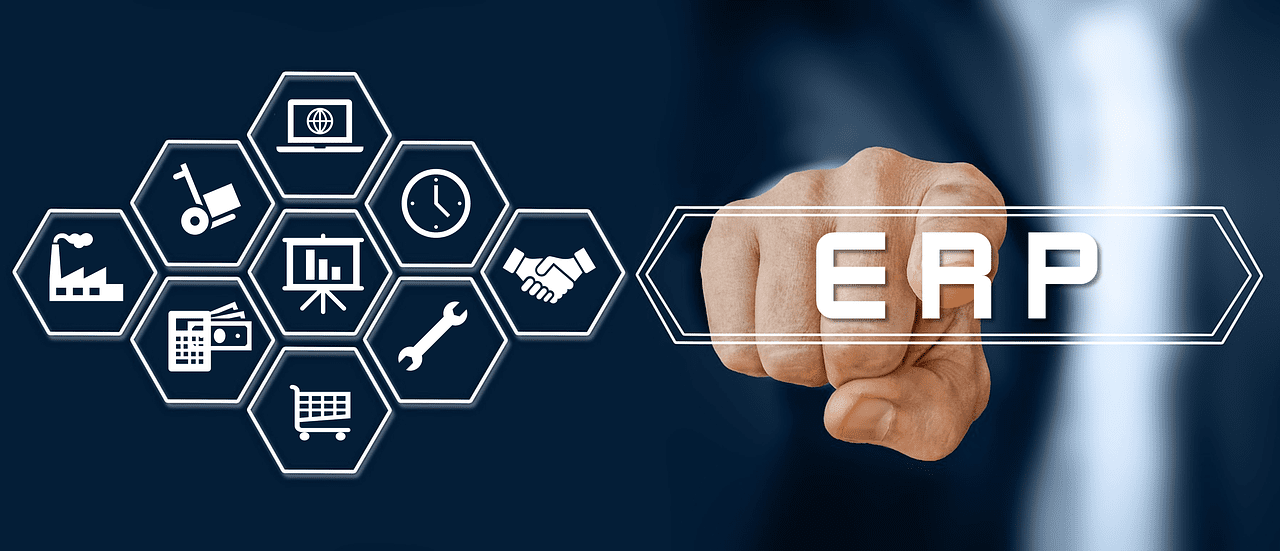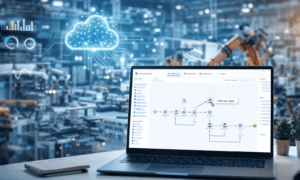Enterprise Resource Planning (ERP) is a revolutionary new business management tool. It encompasses numerous functionalities within a single network, which enables seamless connection of processes and data throughout an organization. This tool allows a business to efficiently operate its core functionalities, thereby ensuring a seamless flow of information between departments. ERP is essential for firms seeking to enhance productivity and efficiency.
Core Functions of ERP
ERP systems are comprehensive packages that encompass various processes, including finance, human resources, manufacturing, and supply chain management, among others. Enterprise resource planning integrates these areas to provide a unified view of business processes. It enables organizations to access and act swiftly on data insights, which leads to fewer mistakes and increased functionality. Functions within one another are interlinked, which improves communication within departments.
Benefits of Implementing ERP
You can avail several benefits of implementing an ERP system. Being centralized helps improve data accuracy, with minimal discrepancies. Enhanced reporting functionality provides quick insights into business processes. ERP systems improve operational efficiency by automating routine tasks. They allow employees to focus on more strategic initiatives that drive company growth and innovation.
Customization and Flexibility
These ERP systems also offer customization options to meet the unique needs of individual businesses. Such systems are dynamic enough to allow organizations to customize functionalities according to their needs. This flexibility enables the system to scale as the organization grows, thereby adjusting its homogeneity to accommodate increasing complexity. Customization enables businesses to maintain their competitiveness by delivering solutions that align with their goals.
Challenges in Adopting ERP
Implementing an ERP system into a workflow is a challenging task. It necessitates an extended period of time and substantial cost when it comes to achieving success. Moreover, employees may resist a shift away from traditional methods of working to an integrated system. To ensure seamless adoption, training is essential. Organizations may also face challenges in mapping ERP features to their current workflows. They can address this through meticulous planning and implementation.
ERP and Business Intelligence
Business intelligence tools are naturally integrating with ERP systems. All of these factors together help improve decision-making through real-time data analytics. It provides businesses with greater insight into their operations by improving visibility of trends and identifying opportunities for improvement. Combining ERP and business intelligence offers a strategic advantage, thus enabling companies to respond effectively to changing market dynamics.
Cloud-Based ERP Solutions
Many increasingly favor cloud ERP solutions due to their accessibility and lower costs. Such systems provide scalability, thereby enabling businesses to grow without requiring considerable investments in infrastructure. Moreover, remote access through cloud solutions allows employees to conduct business from various locations. This level of flexibility is a great advantage for companies that have both decentralized teams and shifting operational requirements.
The ERP for Small and Medium Enterprises
Even small and medium-sized enterprises (SMEs) can benefit from utilizing ERP systems. Historically reserved for large corporations, smaller businesses have now adapted ERP solutions to their needs. They help SMEs increase operational efficiency, reduce overall costs, and enhance customer service. ERP enables technological solutions that give smaller companies the competitive advantage they need to succeed in the market.
Future of ERP Systems
ERP systems have a bright future ahead as tech evolves to shape new developments in these systems. ERP will also incorporate artificial Intelligence and machine learning through predictive analytics and the automation of repetitive tasks. These upgrades will further enhance efficiency and decision-making. It will remain close to the core of all growing businesses as technology continues to evolve.
Conclusion
ERP is a system that can invoke change in an organization of any size. ERP systems lead to greater efficiencies and better decision-making because they integrate core functions and offer valuable insights. It has numerous benefits that outweigh the challenges of implementation. These systems will reserve a stronger position in the future, due to the technological revolution.



































